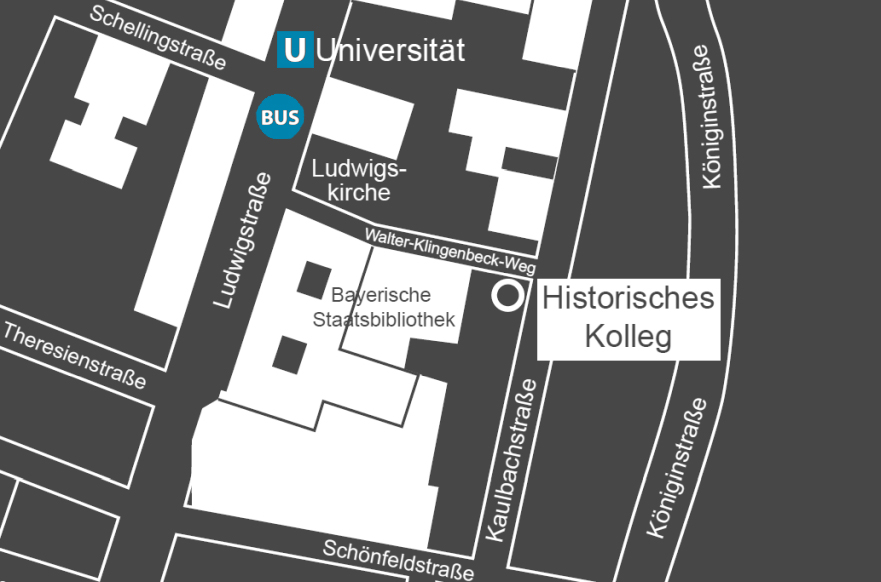Das sieht man nur in Englisch
The Historisches Kolleg invites applications for a Consolidator Fellowship for the 47th Kolleg year (1 October 2026-30 September 2027) aimed at applicants from the Global South, especially Africa
With the Consolidator Fellowship Global South, the Kolleg aims to promote international exchange and help counteract global inequality of opportunity in academia. The additional funding required is provided by the Bavarian Academy of Sciences and Humanities (BAdW).
Fellowship at the Historische Kolleg
The full-year fellowship (October to September) serves to support research projects in the humanities, social sciences and law that make use of historical methods. Residence in Munich is compulsory for the duration of the fellowship. Fellows are provided with office space and accommodation in the Historisches Kolleg. Freed from administrative and teaching duties, fellows are expected to give their full focus to their research project. They are further expected to give a public lecture during their fellowship year. This lecture will also be recorded on a separate date for online publication in the media centre of the Kolleg and with L.I.S.A., the science portal of the Gerda Henkel Foundation.
Application Process
The fellowship is open to all applicants from the Global South. Female applicants are expressly encouraged.
Documents Required
Curriculum vitae (CV),
List of publications,
Work plan (max. 15 pages) with detailed information on the following points:
- Type and aim of the project,
- detailed description of the current state of project (partial manuscript or precise, meaningful outline),
- half-page summary of the book project,
- planned archive and library trips,
- names of institutions and scholars with whom the applicant would like to co-operate in Munich,
Applications should be directed to the administration office of the Historisches Kolleg (fellowships@historischeskolleg.de).
Selection Procedure
The Fellows are selected by the board of trustees of the Historisches Kolleg with the support of external expert advisors. The application deadline is 30 April 2025. All applications will be treated confidentially. All decisions are final.
Consolidator Fellowships Global South
Creating free spaces – that is the central idea of the Historisches Kolleg. Since 1980, it has offered excellent scholars the freedom to research, think, and write for one year (October to September of the following year) to bring a major work to completion.

